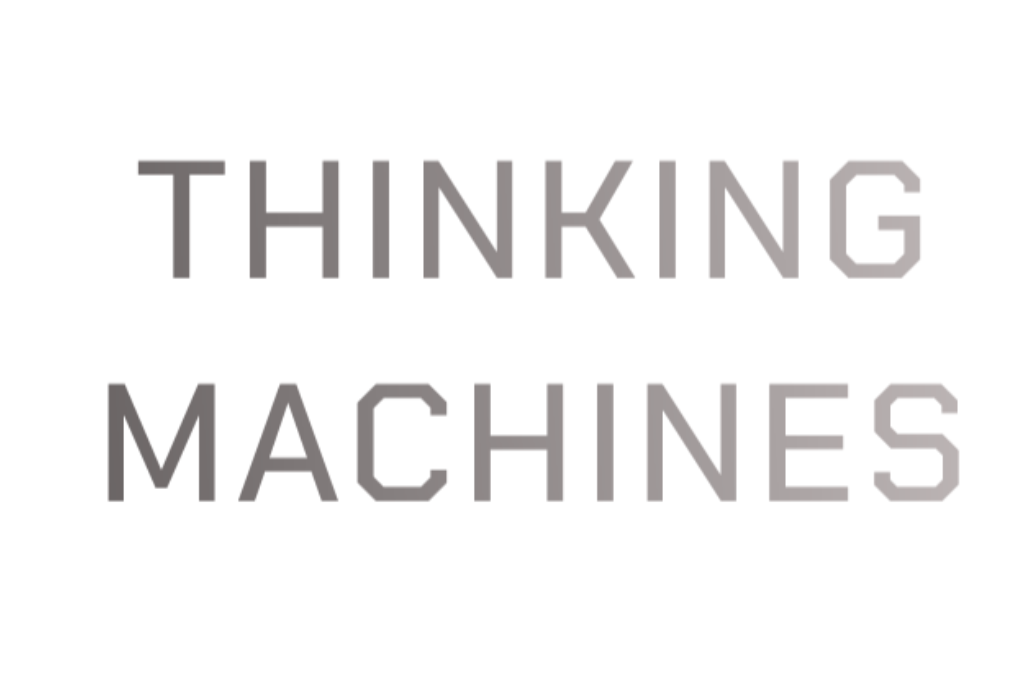AI Research
Bears vs. Vikings NFL props, odds, SportsLine Machine Learning Model AI prediction: Williams under 218.5 yards

NFL Week 1 concludes with a Monday Night Football matchup at 8:15 p.m. ET between the Chicago Bears and Minnesota Vikings. J.J. McCarthy will make his regular season debut after missing last year due to injury, and he’ll see a member of his draft class on the other side of the field in Caleb Williams. NFL prop bettors will likely target the two young quarterbacks with NFL prop picks, in addition to proven playmakers like Justin Jefferson, D.J. Moore and Aaron Jones. Jefferson, who torched the Bears earlier in his career, has been contained in recent matchups which could influence MNF prop picks.
The two-time All-Pro has been held under 75 receiving yards in three straight games versus Chicago as Jefferson has an SNF prop total of 77.5 receiving yards. Both the Over and Under would return -112, per the latest NFL prop odds, as his early chemistry with McCarthy will be a focal point. You certainly want to end your Week 1 NFL betting on a winning note, so having the right NFL props advice is paramount. Before betting any Vikings vs. Bears props for Monday Night Football, you need to see the Bears vs. Vikings prop predictions powered by SportsLine’s Machine Learning Model AI.
Built using cutting-edge artificial intelligence and machine learning techniques by SportsLine’s Data Science team, AI Predictions and AI Ratings are generated for each player prop.
For Vikings vs. Bears NFL betting on Monday Night Football, the Machine Learning Model has evaluated the NFL player prop odds and provided Bears vs. Vikings prop picks. You can only see the Machine Learning Model player prop predictions for Minnesota vs. Chicago here.
Top NFL player prop bets for Bears vs. Vikings
After analyzing the Vikings vs. Bears props and examining the dozens of NFL player prop markets, the SportsLine’s Machine Learning Model says Bears QB Williams goes Under 218.5 passing yards (-114 at FanDuel). Primetime games like what he’ll see on Sunday night weren’t too favorable to Williams as a rookie. He lost all three he played in, had one total passing score across them, was sacked an average of 5.3 times and, most relevant to this NFL prop, Williams failed to reach even 200 passing yards in any of the three.
One of those games came against the Vikings in Week 15 as Williams finished with just 191 yards through the air. Minnesota terrorized quarterbacks a year ago as it led the NFL with 24 defensive interceptions, held opposing QBs to the second-lowest passer rating (82.4) and racked up the fourth-most sacks (49). Given Minnesota’s prowess in defending the pass, and Williams’ primetime struggles, the SportsLine Machine Learning Model forecasts him to finish with just 174.8 passing yards, making Under 218.5 a 4.5-star NFL prop. See more NFL props here, and new users can also target the FanDuel promo code, which offers new users $300 in bonus bets if their first $5 bet wins:
How to make NFL player prop bets for Chicago vs. Minnesota
In addition, the SportsLine Machine Learning Model says another star sails past his total and has four additional NFL props that are rated four stars or better. You need to see the Machine Learning Model analysis before making any Vikings vs. Bears prop bets for Monday Night Football.
Which Bears vs. Vikings prop bets should you target for Monday Night Football? Visit SportsLine now to see the top Vikings vs. Bears props, all from the SportsLine Machine Learning Model.
AI Research
Ray Dalio calls for ‘redistribution policy’ when AI and humanoid robots start to benefit the top 1% to 10% more than everyone else

Legendary investor Ray Dalio, founder of Bridgewater Associates, has issued a stark warning regarding the future impact of artificial intelligence (AI) and humanoid robots, predicting a dramatic increase in wealth inequality that will necessitate a new “redistribution policy”. Dalio articulated his concerns, suggesting that these advanced technologies are poised to benefit the top 1% to 10% of the population significantly more than everyone else, potentially leading to profound societal challenges.
Speaking on “The Diary Of A CEO” podcast, Dalio described a future where humanoid robots, smarter than humans, and advanced AI systems, powered by trillions of dollars in investment, could render many current professions obsolete. He questioned the need for lawyers, accountants, and medical professionals if highly intelligent robots with PhD-level knowledge become commonplace, stating, “we will not need a lot of those jobs.” This technological leap, while promising “great advances,” also carries the potential for “great conflicts.”
He predicted “a limited number of winners and a bunch of losers,” with the likely result being much greater polarity. With the top 1% to 10% “benefiting a lot,” he foresees that being a dividing force. He described the current business climate on AI and robotics as a “crazy boom,” but the question that’s really on his mind is: why would you need even a highly skilled professional if there’s a “humanoid robot that is smarter than all of us and has a PhD and everything.” Perhaps surprisingly, the founder of the biggest hedge fund in history suggested that redistribution will be sorely needed.
Five big forces
“There certainly needs to be a redistribution policy,” Dalio told host Steven Bartlett, without directly mentioning universal basic income. He clarified that this will have to more than “just a redistribution of money policy because uselessness and money may not be a great combination.” In other words, if you redistribute money but don’t think about how to put people to work, that could have negative effects in a world of autonomous agents. The ultimate takeaway, Dalio said, is “that has to be figured out, and the question is whether we’re too fragmented to figure that out.”
Dalio’s remarks echo those of computer science professor Roman Yampolskiy, who sees AI creating up to 80 hours of free time per week for most people. But AI is also showing clear signs of shrinking the jobs market for recent grads, with one study seeing a 13% drop in AI-exposed jobs since 2022. Major revisions from the Bureau of Labor Statistics show that AI has begun “automating away tech jobs,” an economist said in a statement to Fortune in early September.
Dalio said he views this technological acceleration as the fifth of five “big forces” that create an approximate 80-year cycle throughout history. He explained that human inventiveness, particularly with new technologies, has consistently raised living standards over time. However, when people don’t believe the system works for them, he said, internal conflicts and “wars between the left and the right” can erupt. Both the U.S. and UK are currently experiencing these kinds of wealth and values gaps, he said, leading to internal conflict and a questioning of democratic systems.
Drawing on his extensive study of history, which spans 500 years and covers the rise and fall of empires, Dalio sees a historical precedent for such transformative shifts. He likened the current era to previous evolutions, from the agricultural age, where people were treated “essentially like oxen,” to the industrial revolutions where machines replaced physical labor. He said he’s concerned about a similar thing with mental labor, as “our best thinking may be totally replaced.” Dalio highlighted that throughout history, “intelligence matters more than anything” as it attracts investment and drives power.
Pessimistic outlook
Despite the “crazy boom” in AI and robotics, Dalio’s outlook on the future of major powers like the UK and U.S. was not optimistic, citing high debt, internal conflict, and geopolitical factors, in addition to a lack of innovative culture and capital markets in some regions. While personally “excited” by the potential of these technologies, Dalio’s ultimate concern rests on “human nature”. He questions whether people can “rise above this” to prioritize the “collective good” and foster “win-win relationships,” or if greed and power hunger will prevail, exacerbating existing geopolitical tensions.
Not all market watchers see a crazy boom as such a good thing. Even OpenAI CEO Sam Alman himself has said it resembles a “bubble” in some respects. Goldman Sachs has calculated that a bubble popping could wipe out up to 20% of the S&P 500’s valuation. And some long-time critics of the current AI landscape, such as Gary Marcus, disagree with Dalio entirely, arguing that the bubble is due to pop because the AI technology currently on the market is too error-prone to be relied upon, and therefore can’t be scaled away. Stanford computer science professor Jure Leskovec told Fortune that AI is a powerful but imperfect tool and it’s boosting “human expertise” in his classroom, including the hand-written and hand-graded exams that he’s using to really test his students’ knowledge.
For this story, Fortune used generative AI to help with an initial draft. An editor verified the accuracy of the information before publishing.
AI Research
Mira Murati’s Thinking Machines Lab Publishes First Research on Deterministic AI Models

Thinking Machines Lab, the AI research company founded by former OpenAI CTO Mira Murati, has released its first public research under a new blog series titled Connectionism. Backed by $2 billion in seed funding and a team of former OpenAI researchers, the lab is focused on solving fundamental challenges in AI.
The inaugural post, authored by Horace He, explores how randomness in large language model inference arises from GPU kernel orchestration. The research outlines techniques to create deterministic responses, a breakthrough with potential applications in enterprise reliability, scientific research, and reinforcement learning. The publication marks a rare glimpse into one of Silicon Valley’s most closely watched AI startups as it prepares its first product launch.
AI Research
When you call Donatos, you might be talking to AI

If you call Donatos Pizza to place an order, you might be speaking with artificial intelligence.
The Columbus-based pizza chain announced that it has completed a systemwide rollout of voice-ordering technology powered by Revmo AI. The company says the system is now live at all 174 Donatos locations and has already handled more than 301,000 calls since June.
Donatos Reports Higher Order Accuracy, More Efficient Operations
According to Donatos, the AI system has converted 71% of calls into orders, up from 58% before the rollout, and has achieved 99.9% order accuracy. The company also says the switch freed up nearly 5,000 hours of staff time in August alone, allowing employees to focus more on preparing food and serving in-store customers.
“Our focus was simple: deliver a better guest experience on the phone and increase order conversions,” Kevin King, President of Donatos Pizza, said in a statement.
Ben Smith, Donatos’ Director of Operations Development, said the change provided immediate relief on the phones, allowing staff to redirect time to order accuracy and hospitality.
Donatos said it plans to expand the system to handle more types of calls and to make greater use of its centralized answering center. The company did not say whether it plans to reduce call center staffing or rely more heavily on automation in the future.
Other chains report trouble with AI ordering systems
Taco Bell recently started re-evaluating its used of AI to take orders in the drive-thru after viral videos exposed its flaws. In one well-known video, a man crashed the system by ordering 18,000 cups of water. The company is now looking at how AI can help during busy times and when it’s appropriate for a human employee to step in and take the order.
Last year, McDonald’s ended its AI test in 100 restaurants after similar problems surfaced. In one case, AI added bacon to a customer’s ice cream. A McDonald’s executive told the BBC that artificial intelligence will still be part of the chain’s future.
-

 Business2 weeks ago
Business2 weeks agoThe Guardian view on Trump and the Fed: independence is no substitute for accountability | Editorial
-
Tools & Platforms1 month ago
Building Trust in Military AI Starts with Opening the Black Box – War on the Rocks
-

 Ethics & Policy2 months ago
Ethics & Policy2 months agoSDAIA Supports Saudi Arabia’s Leadership in Shaping Global AI Ethics, Policy, and Research – وكالة الأنباء السعودية
-

 Events & Conferences4 months ago
Events & Conferences4 months agoJourney to 1000 models: Scaling Instagram’s recommendation system
-

 Jobs & Careers2 months ago
Jobs & Careers2 months agoMumbai-based Perplexity Alternative Has 60k+ Users Without Funding
-

 Podcasts & Talks2 months ago
Podcasts & Talks2 months agoHappy 4th of July! 🎆 Made with Veo 3 in Gemini
-

 Education2 months ago
Education2 months agoMacron says UK and France have duty to tackle illegal migration ‘with humanity, solidarity and firmness’ – UK politics live | Politics
-

 Education2 months ago
Education2 months agoVEX Robotics launches AI-powered classroom robotics system
-

 Funding & Business2 months ago
Funding & Business2 months agoKayak and Expedia race to build AI travel agents that turn social posts into itineraries
-

 Podcasts & Talks2 months ago
Podcasts & Talks2 months agoOpenAI 🤝 @teamganassi





















